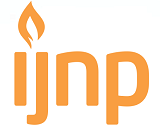Diabetes Self-Management and Distress Levels in Patients With Diabetes Mellitus: a Cross Sectional Study
DOI:
https://doi.org/10.18196/ijnp.v6i2.16880Keywords:
Diabetes mellitus, Diabetes self-management, DistressAbstract
Background: Patients suffer Diabetes Mellitus face challenges related care management disease, treatment proper self. Distress condition covers passionate stretch, enthusiastic and behavioral challenges consequence burden management self.
Objective: The aim of the think about to analyze the relationship between Diabetes Self-Management and trouble Levels in Diabetes Mellitus patients.
Methods: The study used analytic correlation through a cross-sectional approach. Diabetes self-management was variable free and trouble level was variable subordinate. Taking a test of 55 patients utilizing the purposive examining strategy method at Wound Center Madura with criteria inclusion, DM type 1 and 2 patients were undergoing care wounds with ulcer diabetes. Distress instruments used Diabetes Distress Scale and Diabetes Self-Management survey. This ponder utilized the Spearmen rank relationship test.
Results: The measurable test comes about appear p-value = 0.000 < a = 0.05. showing that there is a connection between diabetes self-management with distressed diabetes patients at Wound Center Madura, Indonesia. Nearly half of diabetes patients have a high level of distress, high emotional burden, indicating a high personal emotional burden in the patient, such as feeling tired in dealing with various disease management. This personal reaction can lead to feelings of fear, anger because of diabetes mellitus, while the behavior of checking blood sugar independently with diabetes self management control.
Conclusion: The goal of Diabetes Self-Management is to be able to reduce the Distress and control diabetes mellitus, while poor Diabetes Self-management controls a risk of complications and tends to feel worried and frustrated because they feel unable to control diabetes.
References
Alfian, S. D., A. Wicaksono, I., A. Putri, N., & Abdulah, R. (2021). Prevalence of diabetes distress and associated factors among patients with diabetes using antihypertensive medications in community health centres in Bandung City, Indonesia. Pharmaciana, 11(2), 195. https://doi.org/10.12928/pharmaciana.v11i2.20094
Alkhormi, A. H., Mahfouz, M. S., Alshahrani, N. Z., Hummadi, A., Hakami, W. A., Alattas, D. H., Alhafaf, H. Q., Kardly, L. E., & Mashhoor, M. A. (2022). Psychological Health and Diabetes Self-Management among Patients with Type 2 Diabetes during COVID-19 in the Southwest of Saudi Arabia. Medicina (Lithuania), 58(5), 1–14. https://doi.org/10.3390/medicina58050675
Alzughbi, T., Badedi, M., Darraj, H., Hummadi, A., Jaddoh, S., Solan, Y., & Sabai, A. (2020). Diabetes-related distress and depression in Saudis with type 2 diabetes. Psychology Research and Behavior Management, 13, 453–458. https://doi.org/10.2147/PRBM.S255631
Amir, F., Mastutik, G., Hasinuddin, M., & Putra, S. T. (2018). Dhikr (Recitation) and Relaxation Improve Stress Perception and Reduce Blood Cortisol Level in Type 2 Diabetes Mellitus Patients with OAD. Folia Medica Indonesiana, 54(4), 249. https://doi.org/10.20473/fmi.v54i4.10707
Anita, D. C. (2020). Komorbiditas, komplikasi dan kejadian distress pasien diabetes tipe-2. Jurnal Kebidanan Dan Keperawatan Aisyiyah, 15(2), 126–136. https://doi.org/10.31101/jkk.646
Arifin, B., Perwitasari, D. A., Thobari, J. A., Cao, Q., Krabbe, P. F. M., & Postma, M. J. (2017). Translation, Revision, and Validation of the Diabetes Distress Scale for Indonesian Type 2 Diabetic Outpatients with Various Types of Complications. Value in Health Regional Issues, 12, 63–73. https://doi.org/10.1016/j.vhri.2017.03.010
Azadbakht, M., Taheri Tanjani, P., Fadayevatan, R., Froughan, M., & Zanjari, N. (2020). The prevalence and predictors of diabetes distress in elderly with type 2 diabetes mellitus. Diabetes Research and Clinical Practice, 163, 108133. https://doi.org/10.1016/j.diabres.2020.108133
Dehghan, H., Charkazi, A., Kouchaki, G. M., Zadeh, B. P., Dehghan, B. A., Matlabi, M., Mansourian, M., Qorbani, M., Safari, O., Pashaei, T., & Mehr, B. R. (2017). General self-efficacy and diabetes management self-efficacy of diabetic patients referred to diabetes clinic of Aq Qala, North of Iran. Journal of Diabetes and Metabolic Disorders, 16(1), 10–14. https://doi.org/10.1186/s40200-016-0285-z
Enggarwati, P., Dahlia, D., & Yona, S. (2020). Potensi Pelaksanaan Self Monitoring Blood Glucose Pada Pasien Diabetes Dalam Meningkatkan Kualitas Hidup dan Kontrol Glikemik. Jurnal Ilmiah Ilmu Keperawatan Indonesia, 10(02), 39–51. https://doi.org/10.33221/jiiki.v10i02.560
Erida Silalahi, L., Prabawati, D., & Priyo Hastono, S. (2021). Efektivitas Edukasi Self-Care Terhadap Perilaku Manajemen Diri pada Pasien Diabetes Melitus di Wilayah Puskesmas Sukapura Jakarta. Media Publikasi Promosi Kesehatan Indonesia (MPPKI), 4(1), 15–22. https://doi.org/10.56338/mppki.v4i1.1385
Ghaemi, F., Firouzabadi, F. D., Moosaie, F., Shadnoush, M., Poopak, A., Kermanchi, J., Abhari, S. M. F., Forouzanfar, R., Mansournia, M. A., Khosravi, A., Mohajer, B., Ramandi, M. M. A., Nakhjavani, M., &
Esteghamati, A. (2021). Effects of a Mediterranean diet on the development of diabetic complications: A longitudinal study from the nationwide diabetes report of the National Program for Prevention and Control of Diabetes (NPPCD 2016-2020). Maturitas, 153(August), 61–67. https://doi.org/10.1016/j.maturitas.2021.08.003
Haris, F., & Kristianti, L. Y. (2020). Fahni HarisLinda Yuli Kristianti 1 1. Indonesian Journal of Nursing Practices, 4(1), 21–27.
Heise, M., Heidemann, C., Baumert, J., Du, Y., Frese, T., Avetisyan, M., & Weise, S. (2022). Structured diabetes self-management education and its association with perceived diabetes knowledge, information, and disease distress: Results of a nationwide population-based study. Primary Care Diabetes, 16(3), 387–394. https://doi.org/10.1016/j.pcd.2022.03.016
Hu, Y., Li, L., & Zhang, J. (2020). Diabetes Distress in Young Adults with Type 2 Diabetes: A Cross-Sectional Survey in China. Journal of Diabetes Research, 2020, 6–8. https://doi.org/10.1155/2020/4814378
Huynh, G., Tran, T. T., Do, T. H. T., Truong, T. T. D., Ong, P. T., Nguyen, T. N. H., & Pham, L. A. (2021). Diabetes-related distress among people with type 2 diabetes in Ho Chi Minh City, Vietnam: Prevalence and associated factors. Diabetes, Metabolic Syndrome and Obesity: Targets and Therapy, 14, 683–690. https://doi.org/10.2147/DMSO.S297315
Kamrul-Hasan, A. B. M., Hannan, M. A., Asaduzzaman, M., Rahman, M. M., Alam, M. S., Amin, M. N., Kabir, M. R., Chanda, P. K., Jannat, N., Haque, M. Z., Banik, S. R., Hasan, M. J., & Selim, S. (2022). Prevalence and predictors of diabetes distress among adults with type 2 diabetes mellitus: a facility-based cross-sectional study of Bangladesh. BMC Endocrine Disorders, 22(1), 1–9. https://doi.org/10.1186/s12902-022-00938-3
Khan, A., & Choudhary, P. (2018). Investigating the Association Between Diabetes Distress and Self-Management Behaviors. Journal of Diabetes Science and Technology, 12(6), 1116–1124. https://doi.org/10.1177/1932296818789721
Kheriji, N., Boukhalfa, W., Mahjoub, F., Hechmi, M., Dakhlaoui, T., Mrad, M., Bahlous, A. H. S., Amor, N. Ben, Jamoussi, H., & Kefi, R. (2022). The Role of Dietary Intake in Type 2 Diabetes Mellitus: Importance of Macro and Micronutrients in Glucose Homeostasis. Nutrients, 14(10). https://doi.org/10.3390/nu14102132
Kintzoglanakis, K., Gkousiou, A., Vonta, P., Sagmatopoulos, A., & Copanitsanou, P. (2022). Depression, anxiety, and diabetes-related distress in type 2 diabetes in primary care in Greece: Different roles for glycemic control and self-care. SAGE Open Medicine, 10, 205031212210966. https://doi.org/10.1177/20503121221096605
Kiriella, D. A., Islam, S., Oridota, O., Sohler, N., Dessenne, C., de Beaufort, C., Fagherazzi, G., & Aguayo, G. A. (2021). Unraveling the concepts of distress, burnout, and depression in type 1 diabetes: A scoping review. EClinicalMedicine, 40, 101118. https://doi.org/10.1016/j.eclinm.2021.101118
Kreider, K. E. (2017). Diabetes Distress or Major Depressive Disorder? A Practical Approach to Diagnosing and Treating Psychological Comorbidities of Diabetes. Diabetes Therapy, 8(1), 1–7. https://doi.org/10.1007/s13300-017-0231-1
Lambrinou, E., Hansen, T. B., & Beulens, J. W. J. (2019). Lifestyle factors, self-management and patient empowerment in diabetes care. European Journal of Preventive Cardiology, 26(2_suppl), 55–63. https://doi.org/10.1177/2047487319885455
Masi, G. N. M., Yulia, N., & Masfuri, N. (2020). Motivasi Melakukan Self Monitoring Blood Glucose Dengan Diabetes Self Management Pada Pasien Diabetes Melitus Tipe 2. Jurnal Keperawatan, 8(1), 121. https://doi.org/10.35790/jkp.v8i1.36598
Nanayakkara, N., Pease, A., Ranasinha, S., Wischer, N., Andrikopoulos, S., Speight, J., De Courten, B., & Zoungas, S. (2018). Depression and diabetes distress in adults with type 2 diabetes: Results from the Australian National Diabetes Audit (ANDA) 2016. Scientific Reports, 8(1), 1–10. https://doi.org/10.1038/s41598-018-26138-5
Summers-Gibson, L. (2021). The Relationships Between Diabetes Self-Care, Diabetes Time Management, and Diabetes Distress in Women With Type 2 Diabetes Mellitus. Science of Diabetes Self-Management and Care, 47(4), 245–254. https://doi.org/10.1177/26350106211014438
Tareen, R. S., & Tareen, K. (2017). Psychosocial aspects of diabetes
management: Dilemma of diabetes distress. Translational Pediatrics, 6(4), 383–396. https://doi.org/10.21037/tp.2017.10.04
Wardaningsih, S., & PeprianaWidyaningrum, D. (2018). Pengaruh Intervensi Doa dan Dzikir Al-Ma’tsurat terhadap Skor Depresi pada Pasien Diabetes Melitus di Puskesmas Mlati 1. Indonesian Journal of Nursing Practice, 2(2), 54–60. https://doi.org/10.18196/ijnp.2179
Waxman, E. (2018). Comprehensive Diabetes Self-Management Support From Food Banks : A Randomized Controlled Trial. 108(9), 1227–1234. https://doi.org/10.2105/AJPH.2018.304528
Wong, E. M., Afshar, R., Qian, H., Zhang, M., Elliott, T. G., & Tang, T. S. (2017). Diabetes Distress, Depression and Glycemic Control in a Canadian-Based Specialty Care Setting. Canadian Journal of Diabetes, 41(4), 362–365. https://doi.org/10.1016/j.jcjd.2016.11.006
Zainudin, S. B., Abu Bakar, K. N. B., Abdullah, S. B., & Hussain, A. B. (2018). Diabetes education and medication adjustment in Ramadan (DEAR) program prepares for self-management during fasting with tele-health support from pre-Ramadan to post-Ramadan. Therapeutic Advances in Endocrinology and Metabolism, 9(8), 231–240. https://doi.org/10.1177/2042018818781669
Downloads
Additional Files
Published
Issue
Section
License
License
Articles published in the IJNP (Indonesian Journal of Nursing Practices) are licensed under a Attribution 4.0 International (CC BY 4.0) license. You are free to:
- Share — copy and redistribute the material in any medium or format.
- Adapt — remix, transform, and build upon the material for any purpose, even commercially.
This license is acceptable for Free Cultural Works. The licensor cannot revoke these freedoms as long as you follow the license terms. Under the following terms:
Attribution — You must give appropriate credit, provide a link to the license, and indicate if changes were made. You may do so in any reasonable manner, but not in any way that suggests the licensor endorses you or your use.
- No additional restrictions — You may not apply legal terms or technological measures that legally restrict others from doing anything the license permits.
Copyright
Authors who publish with IJNP (Indonesian Journal of Nursing Practices) agree to the following terms:
- Authors retain copyright and grant IJNP (Indonesian Journal of Nursing Practices) the right of first publication with the work simultaneously licensed under an Attribution 4.0 International (CC BY 4.0) that allows others to remix, adapt and build upon the work with an acknowledgment of the work's authorship and of the initial publication in IJNP (Indonesian Journal of Nursing Practices).
- Authors are permitted to copy and redistribute the journal's published version of the work (e.g., post it to an institutional repository or publish it in a book), with an acknowledgment of its initial publication in IJNP (Indonesian Journal of Nursing Practices).














